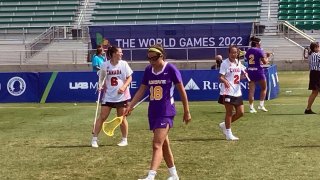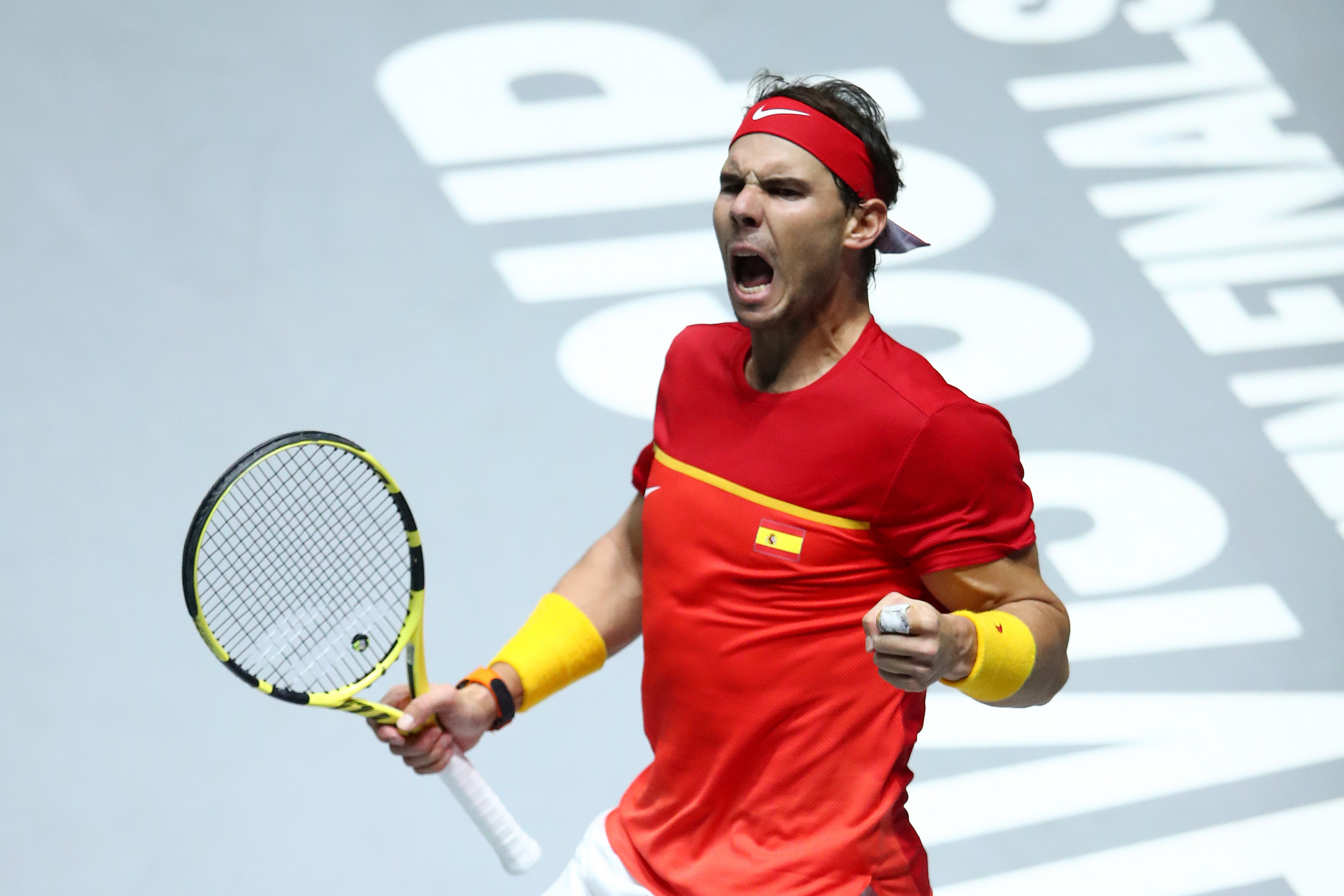
President Joe Biden is pushing to allow the Indigenous nation that invented lacrosse to play under its own flag when the sport returns to the Olympics in 2028.
Biden's position, being announced Wednesday at the White House Tribal Nations Summit, is a request for the International Olympic Committee to allow the Haudenosaunee Nationals to compete as its own team at the Los Angeles Games.
That would require the IOC to make an exception to a rule that permits teams playing only as part of an official national Olympic committee to compete in the Olympics. The Haudenosaunee have competed as their own team at a number of international events since 1990.
“We're hopeful the IOC will see it our way, as well," Tom Perez, the White House senior adviser and director of intergovernmental affairs, told The Associated Press. “If we're successful, it won't simply be the flag of the Haudenosaunee Confederacy that marches in the Olympics, it will be the flag of Indigenous people across the world.”
We've got the news you need to know to start your day. Sign up for the First & 4Most morning newsletter — delivered to your inbox daily. Sign up here.
The Haudenosaunee, formerly known as the Iroquois, is a collection of six Indigenous nations whose territory covers upstate New York and adjacent sections of Canada.
Shortly after the IOC announced in October that lacrosse was returning to the Olympics, it reiterated its stance about teams having to compete under the flag of an established Olympic committee. It suggested the U.S. and Canadian Olympic committees would have to find a way to include Indigenous athletes on their respective national teams.
Carving out certain spots for the athletes on U.S. and Canadian teams would create logistical problems of its own in the selection process. It wasn't the ultimate goal of Haudenosaunee leaders when they pushed for lacrosse to come back to the Olympics.
Sports
“The ultimate goal is for the Haudenosaunee to win a gold medal,” said Leo Nolan, the executive director of the Haudenosaunee Nationals. “It's a delicate situation because there are so many moving parts to this whole thing.”
But, he said, if the goal at the Olympics is to showcase the best in every sport, the Haudenosaunee should have a place in the games. The current world rankings have the Haudenosaunee men in third, behind the U.S. and Canada.
Working with World Lacrosse, the sport’s international federation, organizers for the Los Angeles Olympics leaned heavily into the Indigenous history of the sport to sell the IOC on bringing lacrosse back to the games as a medal event for the first time since 1908.
In around the year 1100, Indigenous communities in northeastern North America invented the first version of lacrosse, playing games that could involve more than 100 men on a side. The sport was viewed as a way to prepare for wars, but also as a religious experience and even as a tool used to settle disputes.
“We look forward to continuing to collaborate with the International Olympic Committee, LA28, and the U.S. and Canadian Olympic Committees to explore potential pathways for the Haudenosaunee to participate in the Olympics while respecting the Olympic Games framework,” World Lacrosse said in a statement Wednesday.
It also released a statement from Haudenosaunee player Fawn Porter, who said the government's support "will help build additional momentum as we continue our journey as Haudenosaunee people with a desire to bring the medicine of lacrosse to the world.”
This summer, the Haudenosaunee started reaching out to the White House to get Biden's support. Perez said the U.S. is working with Canada to support inclusion in the 2028 Olympics.
“I can't think of a more worthy candidate for inclusion than a confederation that literally invented the sport and has some of the most elite men and women in the sport in their nation," Perez said.



